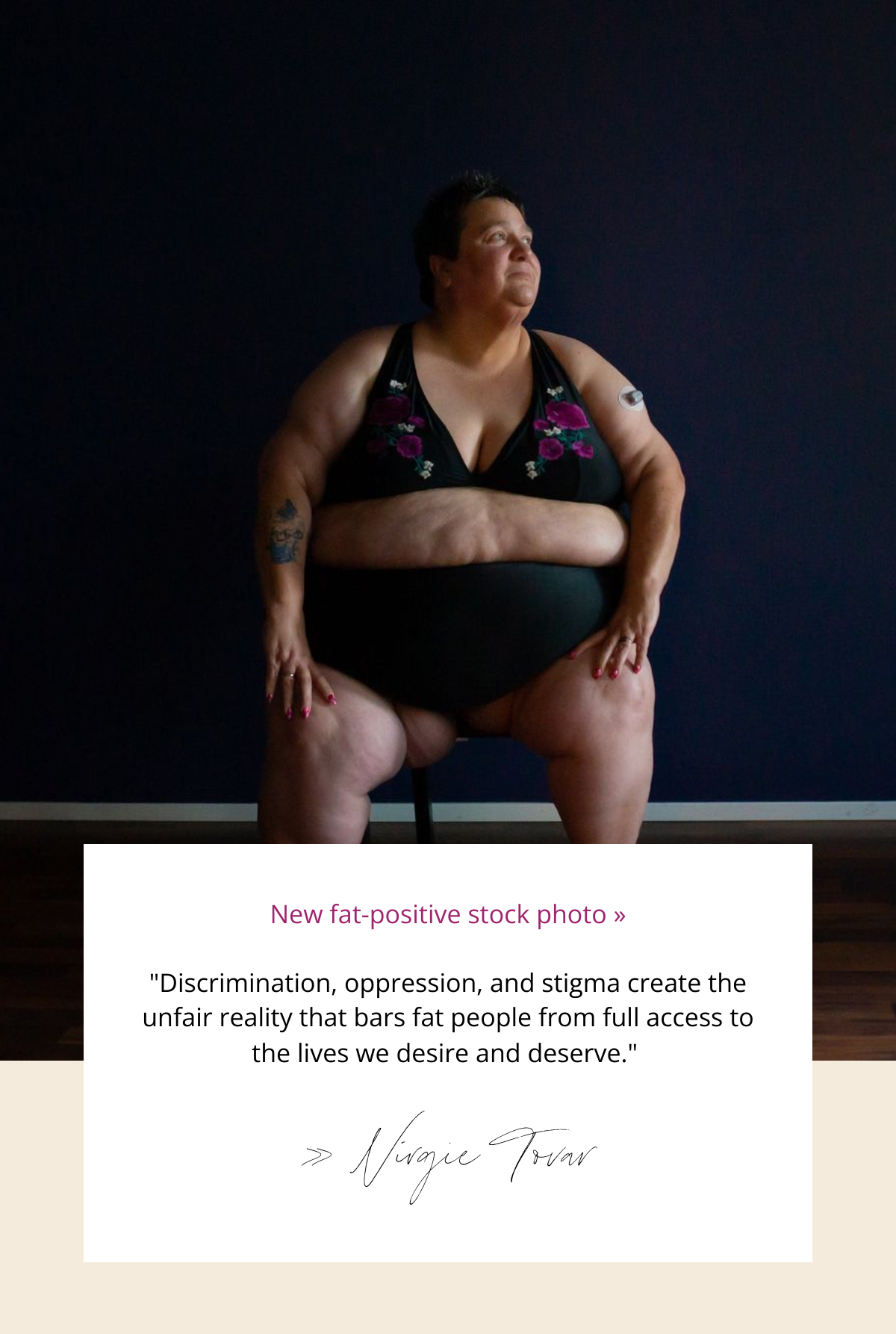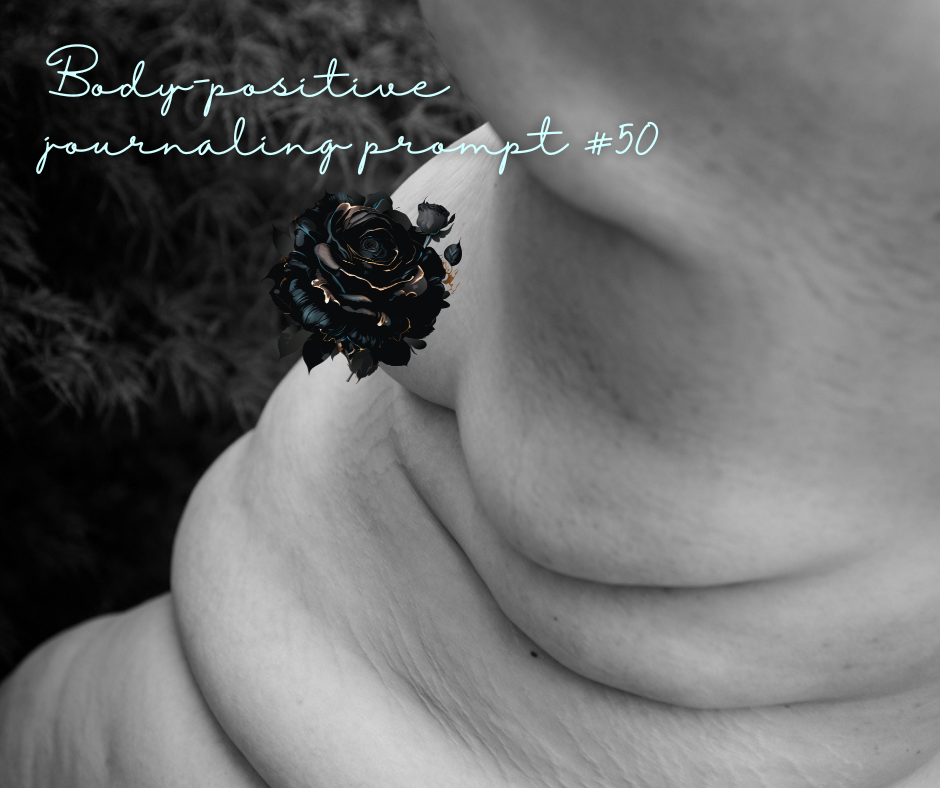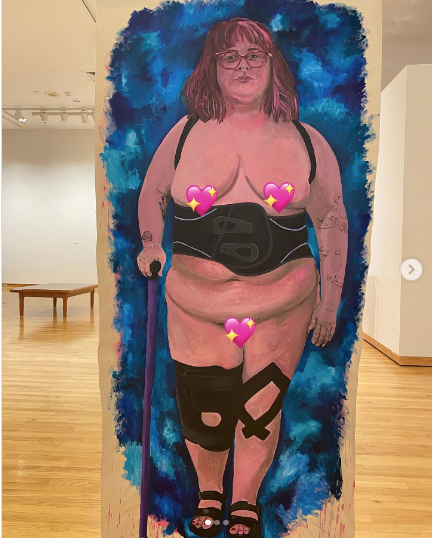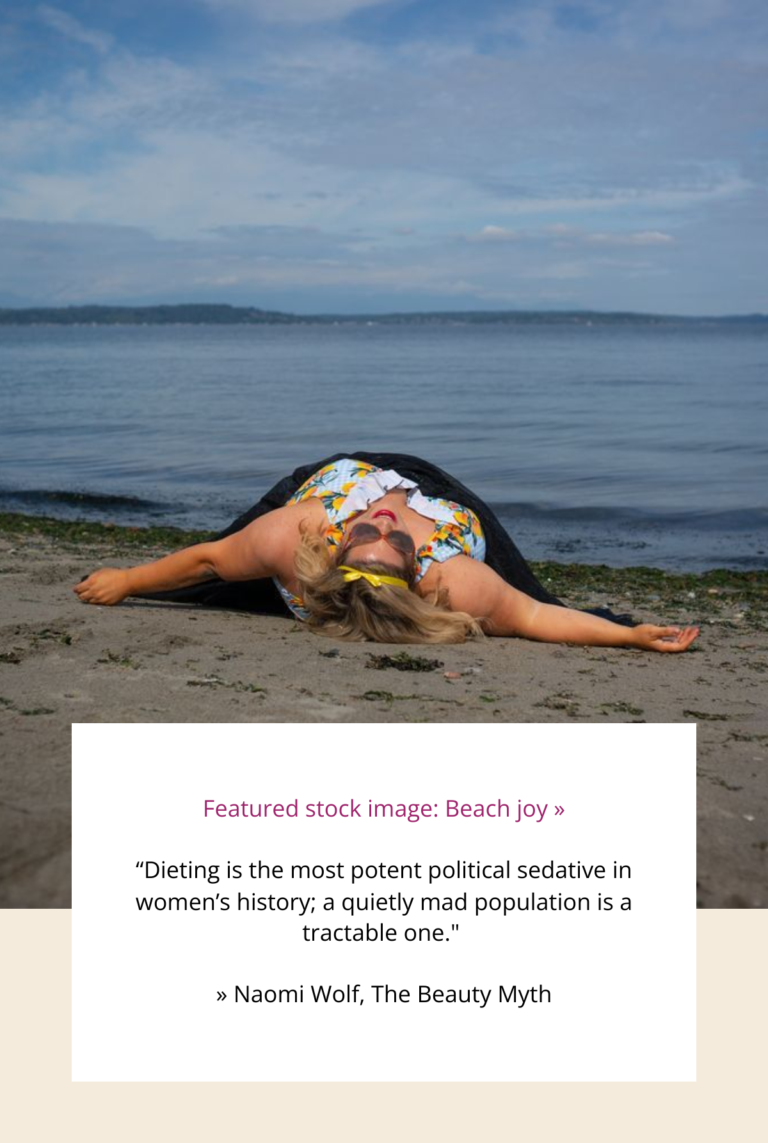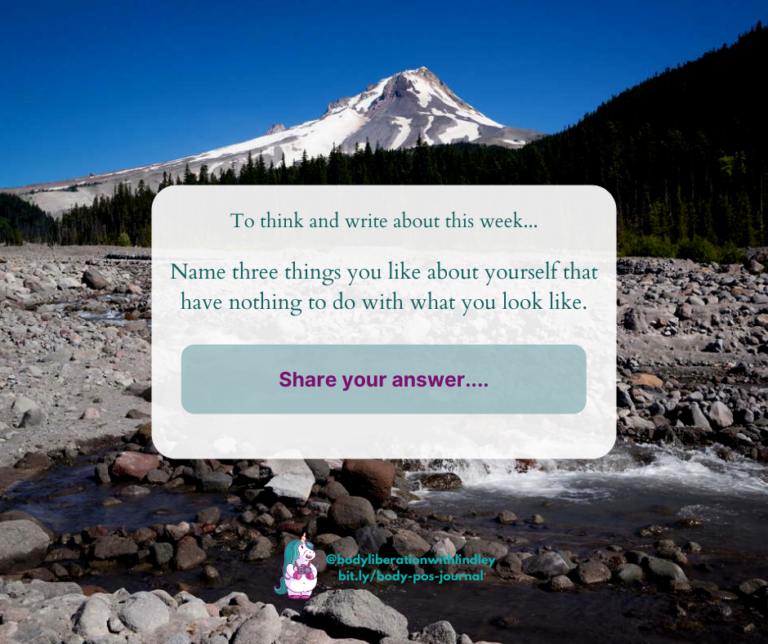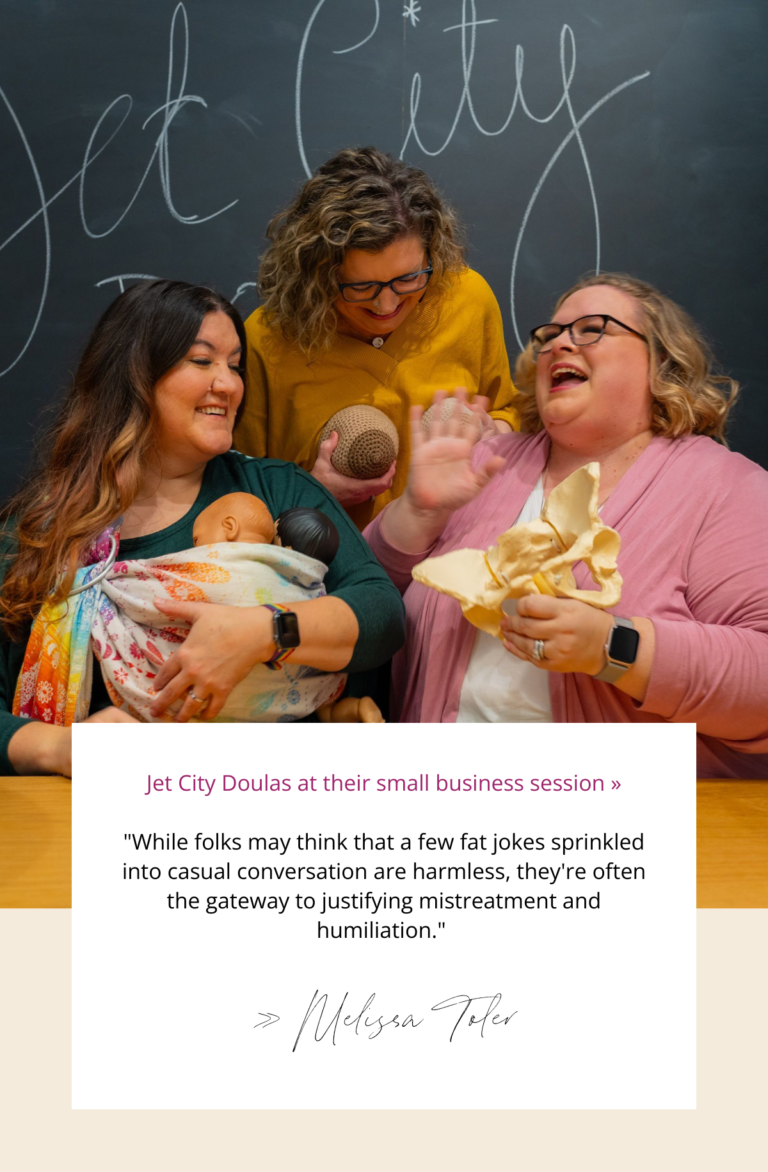{The Body Liberation Guide} New euphemism for fat just dropped
Hi friend,
Before we dive into this week’s letter, some good news to share – Body Liberation Photos was featured over at Dating News! I had a lovely chat with their managing editor, and it resulted in a whole article about bodies in the media, how BLP got started, and why it’s important to celebrate the bodies we actually have.
Here’s a little excerpt:
“We’re unlike any other population in history in terms of the amount of images we see around us all day, every day,” Lindley said. “We see bodies that aren’t our own, or our family or friends, constantly and at a really high volume. Nobody else in history has been exposed to bodies in this way.”
Now, on to this week’s letter:
The other day, I was contacted by a woman who’d been searching for size-inclusive stock photos.
The good news: She found Body Liberation Stock.
The bad news: She found the site by searching on Google Images, and the search results featuring my images had been blurred as “inappropriate content.”
The way that algorithms dehumanize and punish fat people has been on my mind a lot lately. (As well as disabled people and people of color.)
Automated discrimination is so common on social media that it’s simply expected. I most often encounter it on Instagram and Facebook, but Tiktok is notorious for it as well. The larger your body, the more difficult it is to be seen — and even more difficult to not be punished for your visibility.
“The same content can be seen on a fat person and a skinny person, but on a fat person it is deemed pornographic, and on a skinny person it is allowed.” » Carina Shero
(When I googled for more articles on algorithmic bias, one of the top hits was a Reddit post complaining about a dating app showing a guy “ob*se people,” because apparently algorithms daring to suggest fat people as dating prospects are top-five-search-results worthy.)
When we talk about bias, we’re often accused of making things up for attention or otherwise being biased ourselves, but there have been studies done on anti-fat algorithmic bias as well.
Let’s look at a specific example: This post from my feed that Instagram removed with no explanation.
Yes, that’s an awful lot of bare skin! But it’s no more revealing than many, many, many bikini-clad thin bodies all over social media.
It’s so easy to reply with, “Well, the algorithm can’t tell the difference between that side roll and a breast.” But not being able to tell is a decision that humans made. Not rooting out existing biases is a choice, not an inevitable way the world has to work.
Speaking of how the world works, it can also be a bit of a mindfuck for fat people to be taught that they’re only worthy when they’re performing sexiness, then have their photos yanked offline for showing skin.
In a related issue, it’s also remarkably easy for trolls to mass-report a fat person’s social media account and have it taken down — something that’s happened to Dr. Asher Larmie many times — forcing them to start from scratch.
Whether these reports are received and acted on by humans or more algorithms, they ensure that fatties who escape the erasure of automated content filtering are brought to heel after all.
And we know what happens when fat people are erased from public life: even more discrimination and bigotry aimed our way.
Here’s another example: Artist Jessie Keating (also a client, whose session I’ll have up in a blog post soon!) is having trouble posting her lovely graduate school artwork and having it remain up.
At this point, you may be thinking, “Well, should full-on nudity really be on social media, even if it’s artistic?” But that’s neither here nor there as long as these sites’ terms of service allow nudity and — as I’ve personally seen — hardcore pornography, as long as it’s illustrated…and of thin bodies.
One or two companies – notably, Pinterest, in coordination with NAAFA – are making efforts to make their algorithms more body-size inclusive, but in the meantime, fat people everywhere are having the experience of my friend T., who searched for the word “couch” in the gallery app on her phone and found…
…that the search results were photos of her fat body.
(She wasn’t on a couch, and there were no couches in the photos.)
Just call me couchant,
Lindley
The Conversation
Here’s what’s being discussed this week in the world of body acceptance and fat liberation:
» Event: Uncomfortable Body Grief LIVE Q+A, Feb. 12 (register)
» The Brecken Pant by Thicket Adventure is now in kickstarter (see)
» Event: Fat Babes of Phoenix meetups (see)
» Event: Understanding and Resisting Anti-Fatness in the Age of Ozempic, Feb. 22 (register)
» Answer this poll to help Big Moon Apothecary carry inclusive ring sizes (vote)
» Answer this survey to help a (vetted) student create a lipedema app (fill out)
» Answer this survey to help Maya Kern make inclusive clothing (fill out)
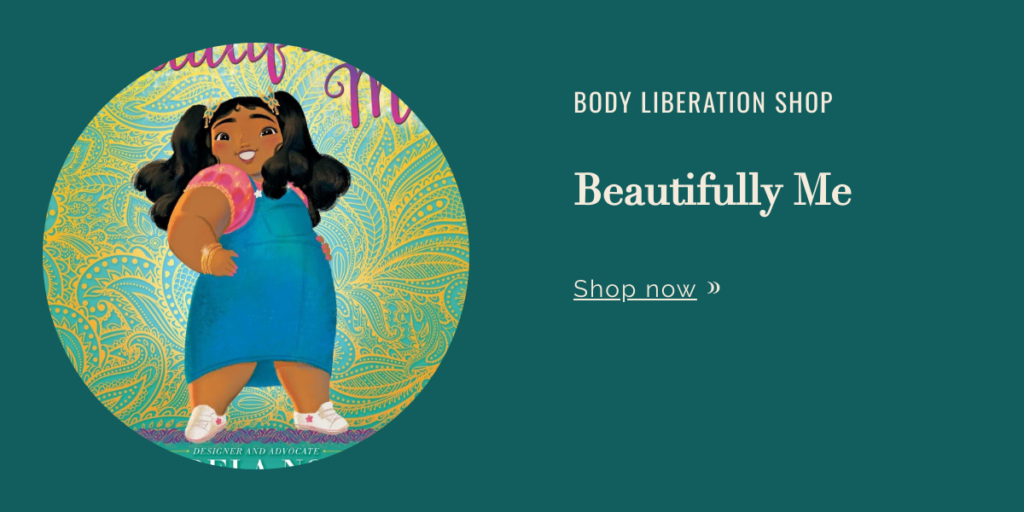
Quick Resources: Fat Stigma in the Entertainment Industry
» Why Do Fat Singers Fight So Hard For An Industry That Hates Us?
» The 8 most fat-phobic movies in Hollywood, ranked by awfulness
» Fat stigmatization in television shows and movies: a content analysis
» Fat Jokes In Children’s Movies Are A Lot More Common Than You Think
» Fat-Shaming Is the Norm in Our Kids’ Favorite Shows & It’s Making Them Hate Their Bodies
Hi there! I'm Lindley. I create artwork that celebrates the unique beauty of bodies that fall outside conventional "beauty" standards at Body Liberation Photography. I'm also the creator of Body Liberation Stock and the Body Love Shop, a curated central resource for body-friendly artwork and products. Find all my work here at bodyliberationphotos.com.

